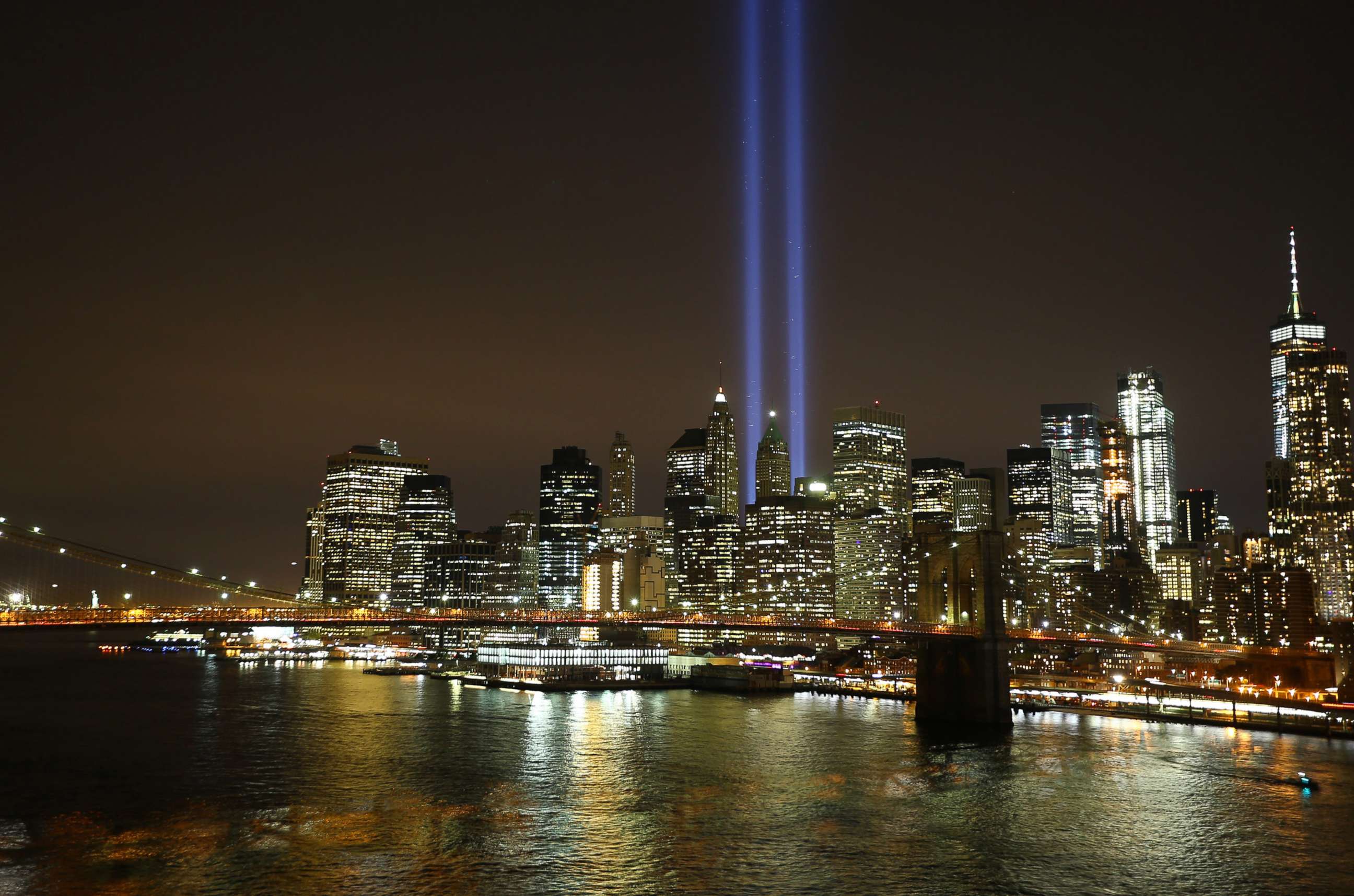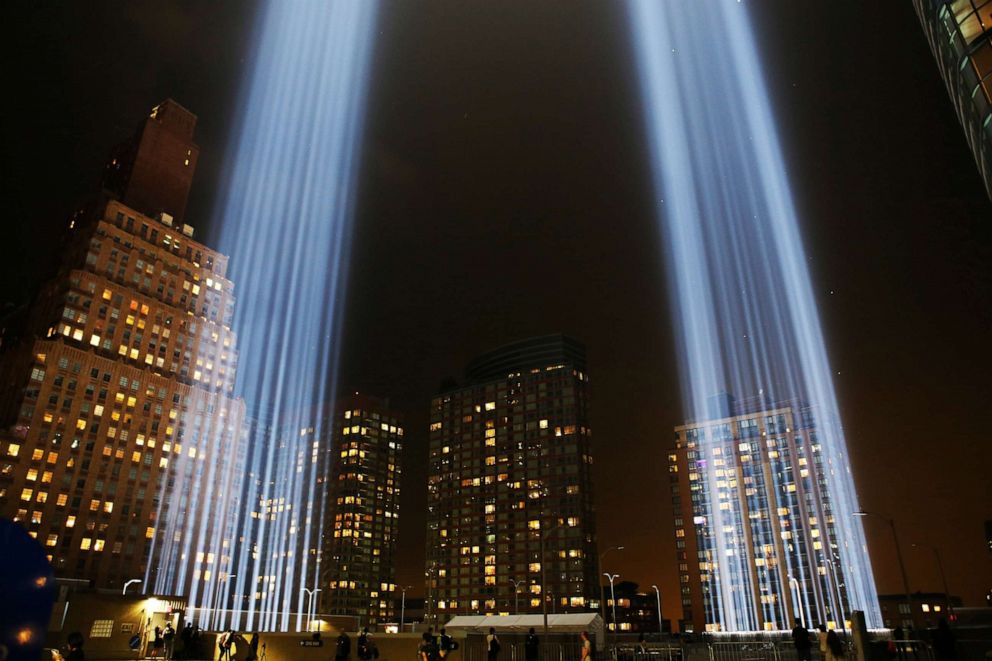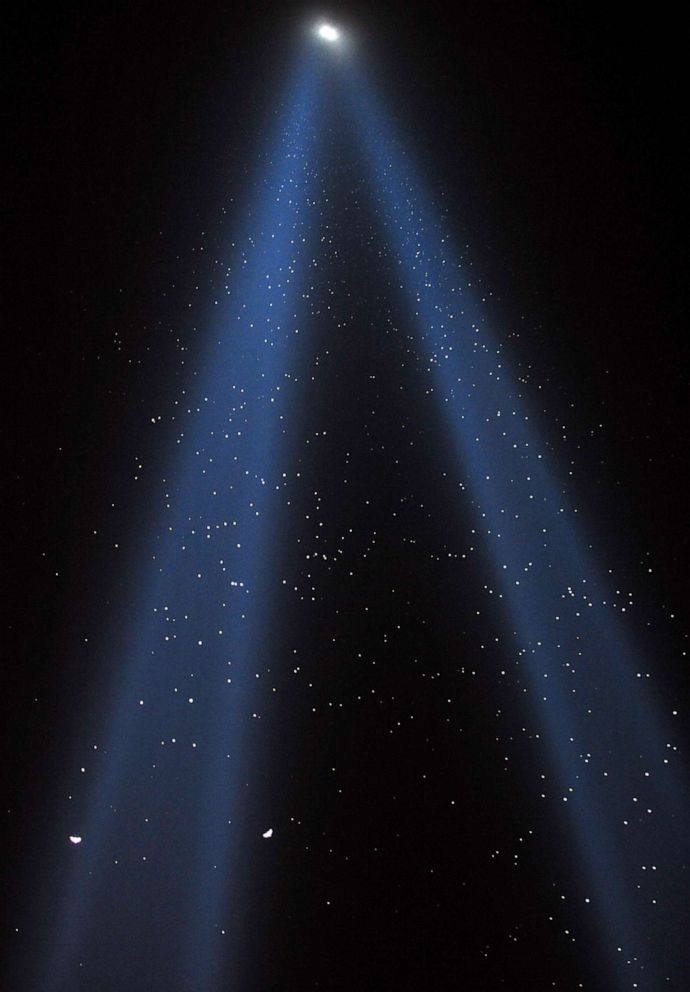New York's 9/11 'Tribute in Light' endangers 160,000 birds annually: Study
The Tribute in Light is an annual art installation to honor 9/11 victims.
The "Tribute in Light," New York City's annual homage to the victims who perished in the Sept. 11, 2001, terrorist attacks, endangers an estimated 160,000 migrating birds a year, drawing them off course and trapping them in the powerful twin beams that shoot into the sky and can be seen from 60 miles away, according to avian experts.
The illuminating installation on display for seven days leading up the anniversary of the hijacked airliner attacks that brought down the two World Trade Center towers, killing nearly 3,000 people, may serve as solemn beacons of remembrance for most people.
But the exhibit also coincides with the annual migration of tens of thousands of birds crisscrossing the New York region -- including songbirds, Canada and yellow warblers, American redstarts, sparrows and other avian species -- that get confused and fly into the towers of light, circling and expending energy and threatening their lives, according to officials at New York City Audubon.

Andrew Maas, a spokesman for NYC Audubon, told ABC News on Tuesday that the artificial light interferes with the birds' natural cues to navigate. Circling within the lights can exhaust the birds and potentially lead to their demise, he noted.
"We know it's a sensitive issue," he said, adding that NYC Audubon has worked for years with the 9/11 Memorial & Museum and the Municipal Art Society of New York, which created the exhibit, to balance protecting the birds while providing the temporary memorial.
The lights also attract bats and birds of prey, including nighthawks and peregrine falcons, who feed on small birds and millions of insects drawn to the lights, The New York Times reported on Tuesday.
A 2017 study published in Proceedings of the National Academy of Sciences of the United States of America, found the Tribute in Light affected 1.1 million migrating birds observed by scientists during the annual exhibit between 2008 and 2016, or about 160,000 birds a year.

"Nocturnally migrating birds are particularly susceptible to artificial light because of adaptations and requirements for navigating and orienting in darkness," according to the study by researchers from NYC Audubon, Oxford University and the Cornell Lab of Ornithology.
The seven-year study found that while the urban light installation "altered multiple behaviors of nocturnally migrating birds," it also discovered that the birds disperse and return to their migratory patterns when the lights are turned off.
Every year, a team of volunteers from NYC Audubon monitor the birds circling in the beams and when the number reaches 1,000, volunteers ask that the lights be turned off for about 20 minutes to free the birds from the seemingly magnetic hold of the lights.

While the Tribute in Light is a temporary hazard to migrating birds, skyscrapers with reflective windows are a permanent threat to feathered flocks that fly around New York City.
Up to 230,000 birds are killed each year crashing into buildings in New York City alone, according to NYC Audubon.
On Tuesday, the New York City Council was set to hold a committee meeting on a bill that would require new or renovated buildings to use bird-friendly glass or glass birds can see more clearly.